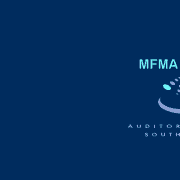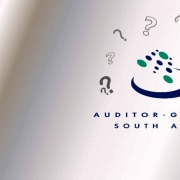|
Getting your Trinity Audio player ready...
|
By Kwazi Dlamini
Lack of accountability in local government continues to impede on service delivery and leads to the deterioration of municipalities, says Auditor-General (AG) Tsakani Maluleke in her recently released 2021/2022 audit outcomes of the Municipal Finance Management Act.
Reporting to Parliament on 31 May 2023, Maluleke said that most municipalities are struggling to drag themselves out of their bad financial position and deliver on their mandate because they fail to implement the recommended accountability measures.
She said the Auditor-General of South Africa (AGSA) had audited 257 municipalities, of which:
- 38 (15%) received clean audits;
- 104 (40%) received unqualified audits with findings;
- 78 (30%) received qualified audits with findings;
- Six (2%) received adverse audits with findings;
- 15 (6%) received disclaimed audits with findings; and
- 16 (7%) audits were outstanding.
In addition, the number of clean audits decreased from 41 in 2020/21.
Maluleke also revealed that timely submission of financial statements had improved, from 81% to 91%. Of the 16 outstanding audits, three were delayed by non-submission of financial statements, 12 were delayed by late submission of financial statements, and one faced other delays by the auditee.
Many reasons for poor audit outcomes
Maluleke reflected on her previous report about the previous administration being characterised by accountability and service delivery failures, weak institutional capacity, poor governance, and instability. The previous report laid bare the worsening financial health, procurement and payment transgressions, and lack of consequences for wrongdoing – and the situation has not changed.
“We did not only pick up these abnormalities, we also shared how poor planning and reporting on basic services, failing municipal infrastructure, and municipalities with disclaimed audit opinions negatively affected service delivery,” Maluleke said.
She emphasised that the incoming administration of 2021 could have used the recommendations of the previous report to avert such problems and improve municipalities – at the same time saying that the new administration is not all to blame for the latest audit outcomes as it had little impact on them. Furthermore, the change in leadership caused instability in local government, which is common when administration change occurs.
Overall the audit outcomes showed little improvement. The AG called for stern accountability processes, because the current conduct of many municipal officials promotes a culture devoid of performance, accountability, transparency, and integrity. Municipalities where this situation prevails are usually the ones marred by corruption.
Disciplinary processes at municipal level are also conducted at a snail’s pace and municipalities – and taxpayers – lose money during this period. Suspended officials can spend up to a year without reporting for duty while receiving their salaries, and in the meantime the municipalities have to pay an incumbent in their place.
Too little, too late?
The recent Hammanskraal cholera outbreak and subsequent deaths of 26 people caused a flurry of finger-pointing, with parties including President Cyril Ramaphosa, the DA, which runs the City of Tshwane, and the national governing party blaming each other for the disaster. It remains to be seen who will be held accountable – if anyone.
Recently, Nelson Mandela Bay municipality suspended seven of its officials from the electricity department on allegations of wide-scale corruption that led to the city experiencing water outages. As recommended in the AGSA report, taking such steps brings hope to the people for the stability of municipalities and service delivery, though they should come with consequences.
Another municipal official who was employed at Ndwedwe local municipality was sentenced to six years in prison for defrauding his employer close to R500 000. The incident occurred between 2015 and 2016,which shows the unacceptable length of the turnaround process for prosecution.
Maluleke urged municipality officials to strengthen their efforts towards a culture of performance, transparency and integrity, and to be accountable to the communities they serve.
“We called on all role players in the accountability ecosystem (particularly the coordinating institutions made up of national and provincial cooperative governance departments and treasuries) to step in to support failing municipalities and focus specifically on improving service delivery, eradicating disclaimed audit opinions, effectively dealing with material irregularities, and stabilising and empowering the administration,” she concluded.








